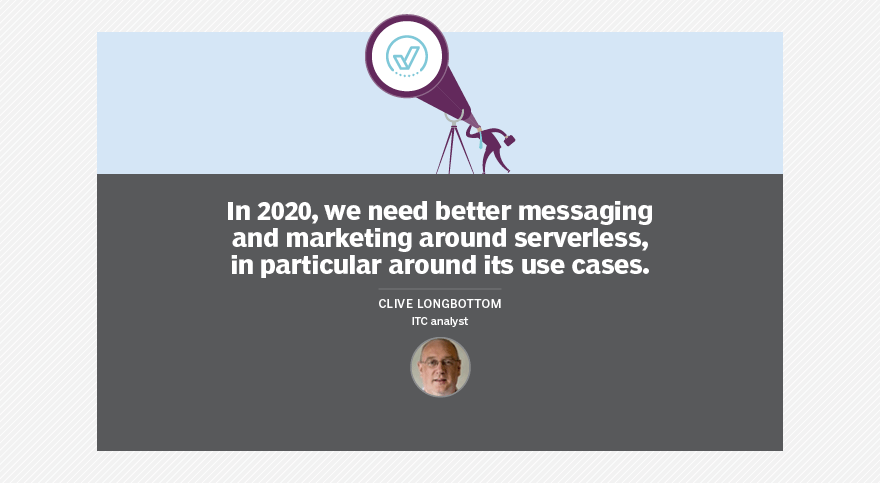5 predictions for 2020 software architecture trends
There's been poor communication on what serverless actually is, so the future of serverless depends on viable use cases and an understanding of what it actually is.
Serverless has come to mean resource flexibility and offloading platform management to a virtual server or some other hosted service. The developer specifies a specific set of workloads and sends the third-party provider a set of inputs, and that provider sends one or more outputs. Serverless providers simply charge for the workloads based upon how much overall resource was required when the workloads executed, lumping together storage, bandwidth and CPU utilization.
In 2020, we need better messaging and marketing around serverless, in particular around its use cases. There doesn't seem to be a real sense, among the end users, as to why serverless makes sense.
A game-changing serverless trend would be integration with DevOps tools at the provider. This pairing makes serverless part of the overall software development ecosystem. To make this shift, the big providers like Google, Microsoft, IBM and AWS must encourage partners and tool vendors to allow serverless operations to quietly ingratiate themselves into their environment successfully.
Whether these advances happen or not, users should not blindly jump buy into a serverless future. You still own the data, and you still own any legal problems that could arise from how you manage certain data and how exposed it is, so don't treat serverless like an abdication of responsibility. Don't start with serverless by transitioning workloads that contain sensitive intellectual property or are open to big legal issues. In this emerging field, it may be worthwhile to avoid smaller providers and stick with big vendors like Google or IBM. Write up a solid contract and have the legal experts examine it.
The future of serverless is safe and useful if users go into the initiative with their eyes open and make sure that all of the legal aspects of their software are covered by the provider.
Clive Longbottom is an independent IT commentator who co-founded Quocirca, an IT consulting firm.






